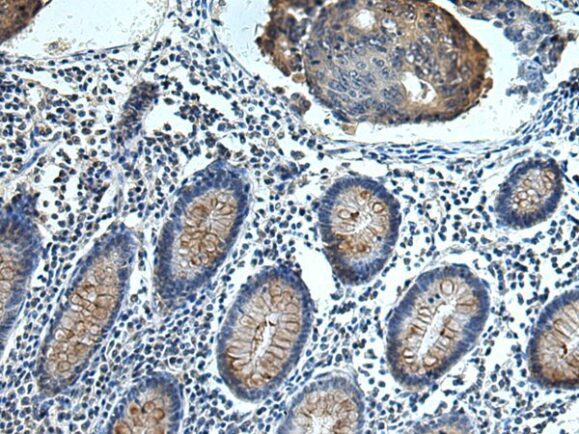The Fc receptor like protein (FCRL) or Fc receptor homolog (FCRH) family of proteins are related to the classical Fc receptors (FcR) and belong to the immunoglobulin receptor superfamily. The proteins in the FCRH family are type I transmembrane glycoproteins and consist of FcRH1-FcRH6. The genes encoding the human FCRH proteins map to chromosome 1, near the related FCR genes. The FCRH proteins, which are involved in immune system regulation, have immunoreceptor-tyrosine inhibitory motifs in their cytoplasmic domains. Mutations in the gene encoding for the FCRH proteins may be associated with systemic lupus erythematosus, autoimmune thyroid disease and rheumatoid arthritis. The FCRH genes are expressed primarily, although not exclusively, by mature B lineage cells, and may serve important regulatory roles in normal and neoplastic B cell development. The encoded protein contains three extracellular C2-like immunoglobulin domains, a transmembrane domain and a cytoplasmic domain with two immunoreceptor-tyrosine activation motifs. This protein may play a role in the regulation of cancer cell growth.
Clone
Polyclonal
Isotype
IgG
Host species
Rabbit
Species Reactivity
Human
Cellular Localization
cytoplasm
Positive Control
lymph node
Applications
ELISA, ICC/IF, IHC, WB
Intended Use
Research Use Only

